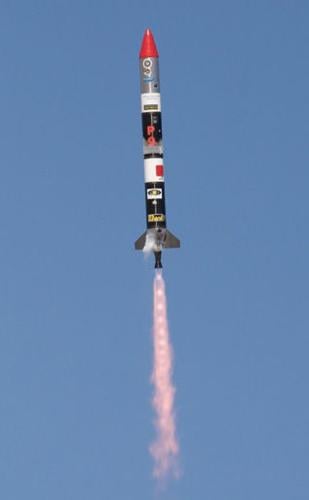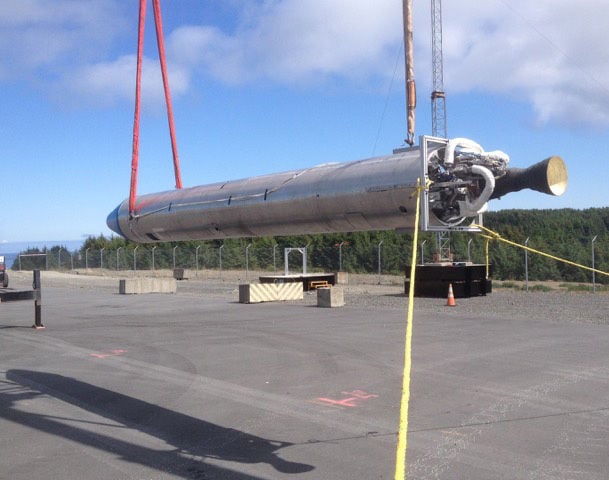Space entrepreneur Jim Cantrell is planning to build small rockets in Tucson that will launch micro satellites into orbit at a fraction of the cost involved in full-scale launches.
Cantrell is CEO of newly formed Vector Space Systems, which announced Tuesday that it has secured “angel investment” of $1 million to continue building and testing prototype rockets already being developed by Garvey Spacecraft Corp., which is a partner in the new venture.
Cantrell, who has run a space investment and consulting business called StratSpace from Tucson since 2008, said the 35-foot-tall rockets will be manufactured here and launched from Cape Canaveral, Florida, California and Alaska. The rockets will carry lightweight satellites into low-Earth orbit, from 200 to 800 miles up, Cantrell said.
A growing market for imaging, communications and scientific inquiry could lead to 100 launches a year for the company, Cantrell said, and a “multibillion-dollar” space business headquartered in Tucson.
“There has been a dramatic increase in the number of (micro) satellite launches,” said Jim Bell, president of the Planetary Society and a professor at Arizona State University’s School of Earth and Space Exploration. “Hundreds have been launched into low-Earth orbit.”
At ASU, a CubeSat program that builds lightweight instruments for delivery into space has “three or four in the works, with launches planned in the next couple years,” Bell said.
Bell said the nonprofit Planetary Society has also launched a CubeSat to deploy an experimental, photon-powered “light sail.”
A successful test of a light sail in January will be followed by a launch into low-Earth orbit sometime this year.
Bell is director of ASU’s NewSpace Initiative, which was created to form partnerships between private space companies and the School of Earth and Space Exploration.
Without commenting directly on Vector Enterprises’ potential, Bell said launch companies will be needed to accommodate the growing need for small satellites to do imaging, remote-sensing and communications. “There aren’t any dedicated launchers for them,” Bell said.
Cantrell said his company will concentrate its business on satellites from 1 to 50 kilograms (2.2 to 110 pounds), which make up about 75 percent of the market.
An analysis done by SpaceWorks Enterprises of Atlanta predicts the launch of 3,000 micro satellites in that size range by 2022.
The SpaceWorks report notes that a number of companies are developing launch systems for nano-satellites. A recent article in Aviation Week identified a dozen of them, including Virgin Galactic and SpaceX.
Cantrell, who was the vice president for business development at SpaceX in its early days, said Vector aims to provide low-cost launches on a regular basis.
Cantrell said the company is testing now at a facility near Mojave, California, and will make its first orbital test in 2018. “We expect to be operational within two years,” he said.
The $1 million raised recently at the Silicon Valley Space 2.0 gathering is the first of three fundraising rounds, he said. Ultimately, about $50 million will be needed to start the company, he said.
Cantrell has worked for the French Space Agency and NASA. His consulting firm has been involved in a number of space startups, including Planet Labs, Skybox Imaging and Tucson-based World View, which has a contract with Pima County to lease a $15 million manufacturing building and spaceport capable of launching the company’s high-altitude balloons.
Vector’s other founders — John Garvey, Ken Sunshine and Eric Besnard — have decades of experience in space programs, including with NASA, McDonnell Douglas and Virgin Galactic.
Cantrell said Vector has no plans to launch missiles in Tucson, but will build them here. The county’s planned tech park, near the Tucson International Airport and Raytheon Missile Systems, is a possibility.
“We’re not necessarily planning to follow World View’s path,” he said, “but we have to put our factory somewhere, and we’d be open to being out there.”





